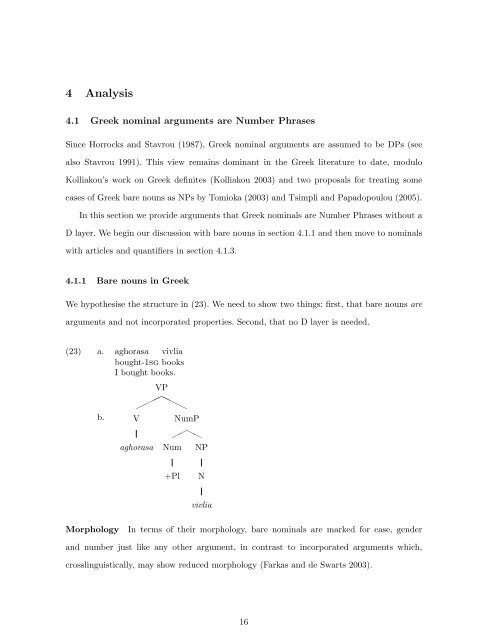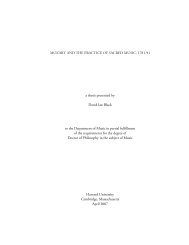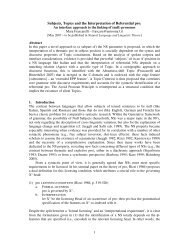draft of November 2011
draft of November 2011
draft of November 2011
You also want an ePaper? Increase the reach of your titles
YUMPU automatically turns print PDFs into web optimized ePapers that Google loves.
4 Analysis<br />
4.1 Greek nominal arguments are Number Phrases<br />
Since Horrocks and Stavrou (1987), Greek nominal arguments are assumed to be DPs (see<br />
also Stavrou 1991). This view remains dominant in the Greek literature to date, modulo<br />
Kolliakou’s work on Greek definites (Kolliakou 2003) and two proposals for treating some<br />
cases <strong>of</strong> Greek bare nouns as NPs by Tomioka (2003) and Tsimpli and Papadopoulou (2005).<br />
In this section we provide arguments that Greek nominals are Number Phrases without a<br />
D layer. We begin our discussion with bare nouns in section 4.1.1 and then move to nominals<br />
with articles and quantifiers in section 4.1.3.<br />
4.1.1 Bare nouns in Greek<br />
We hypothesise the structure in (23). We need to show two things: first, that bare nouns are<br />
arguments and not incorporated properties. Second, that no D layer is needed.<br />
(23) a. aghorasa vivlia<br />
bought-1sg books<br />
I bought books.<br />
VP<br />
✟❍<br />
✟<br />
✟ ❍<br />
❍<br />
b. V NumP<br />
aghorasa<br />
✟ ✟ ❍<br />
❍<br />
Num NP<br />
+Pl<br />
N<br />
vivlia<br />
Morphology In terms <strong>of</strong> their morphology, bare nominals are marked for case, gender<br />
and number just like any other argument, in contrast to incorporated arguments which,<br />
crosslinguistically, may show reduced morphology (Farkas and de Swarts 2003).<br />
16
















